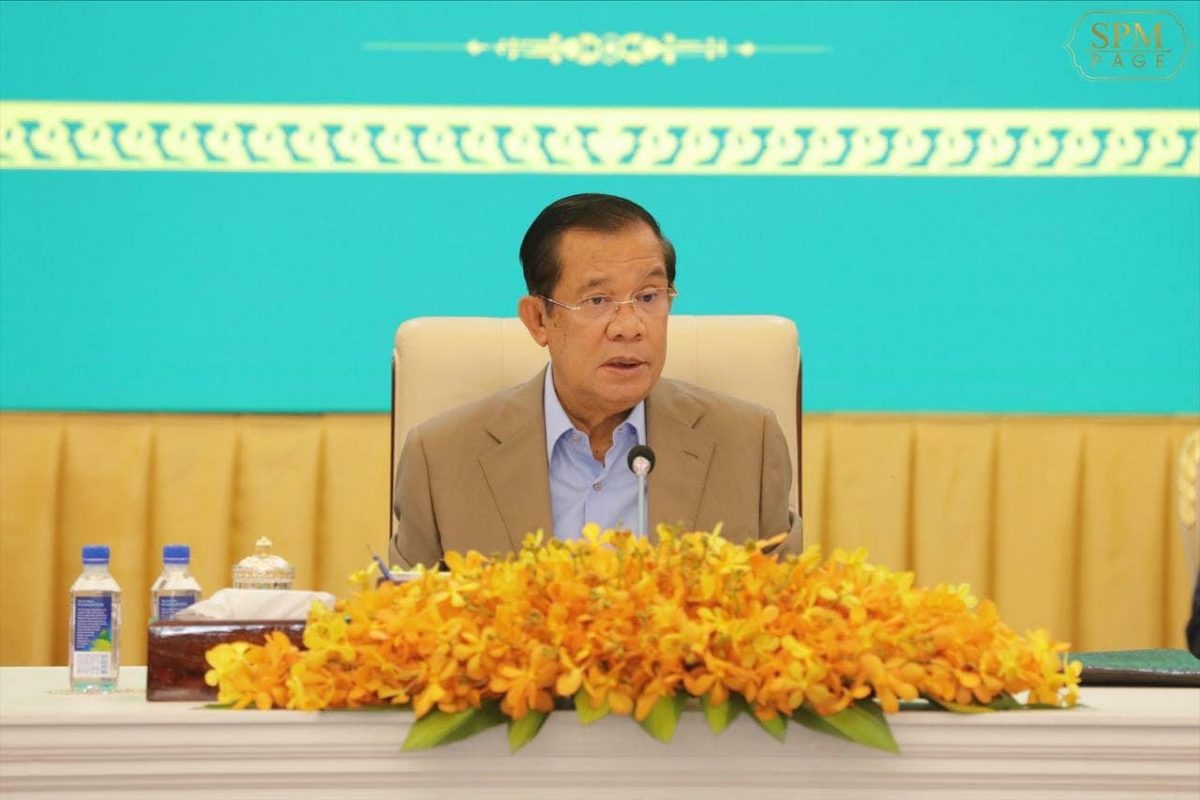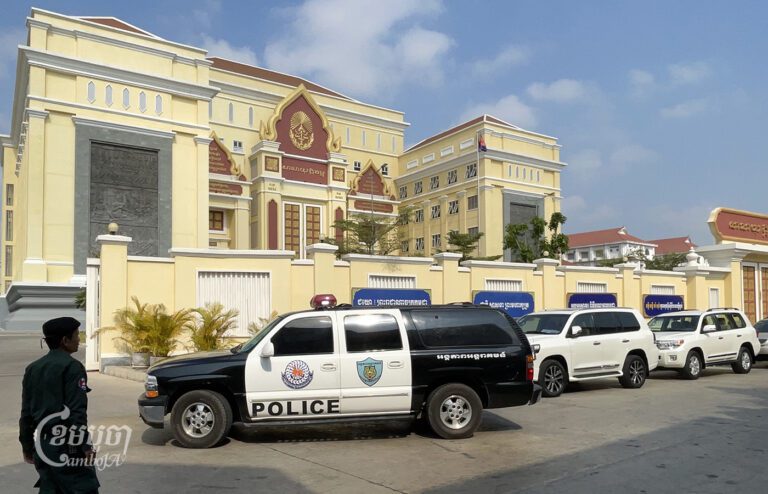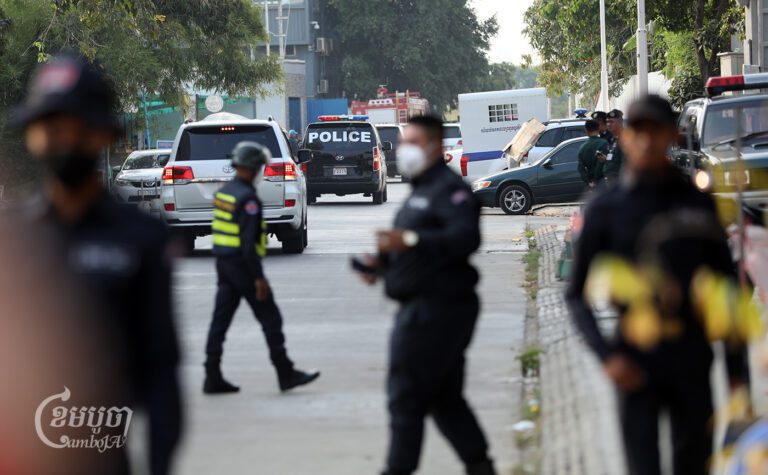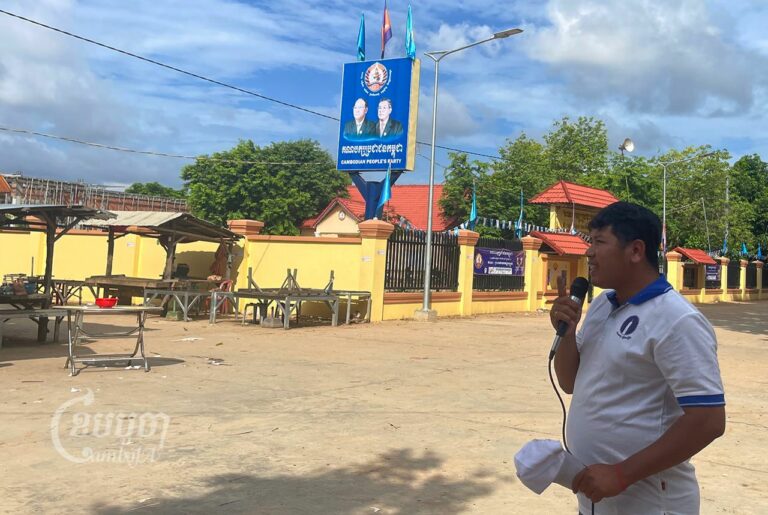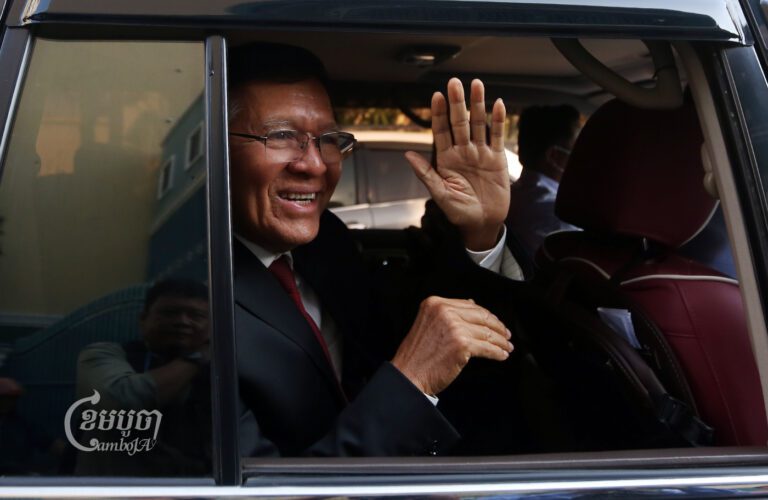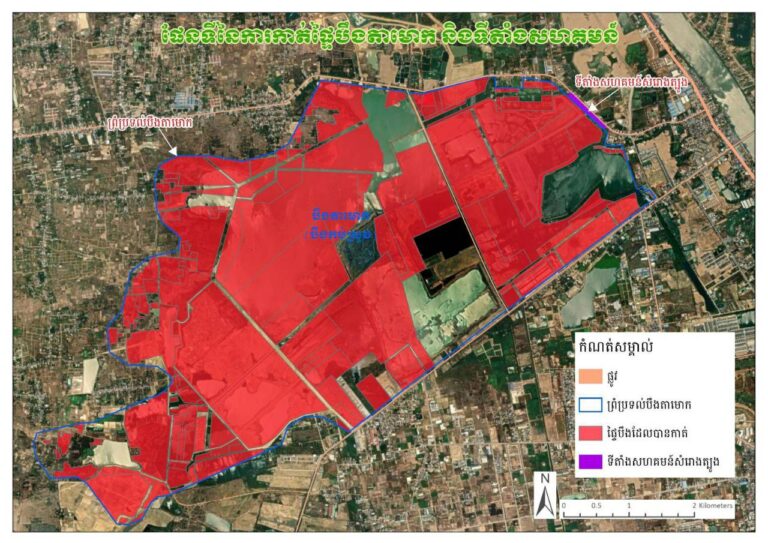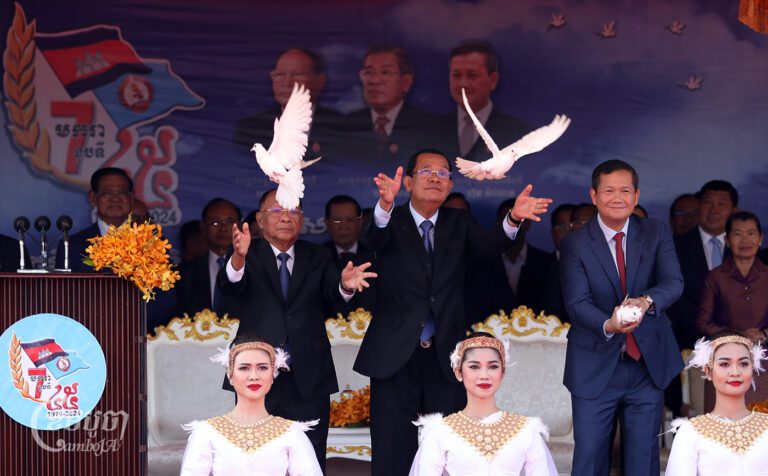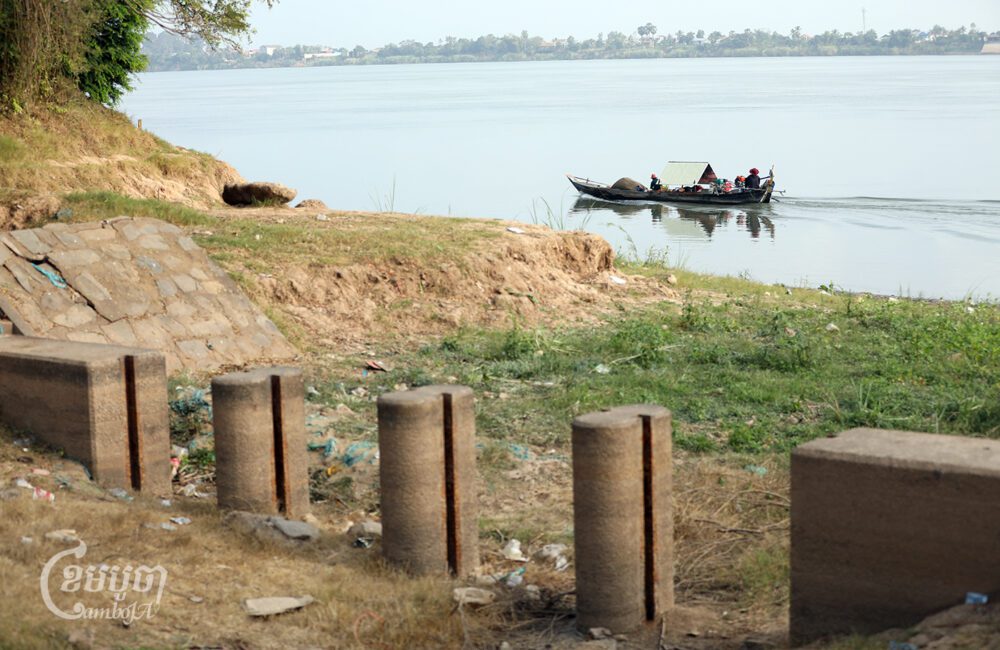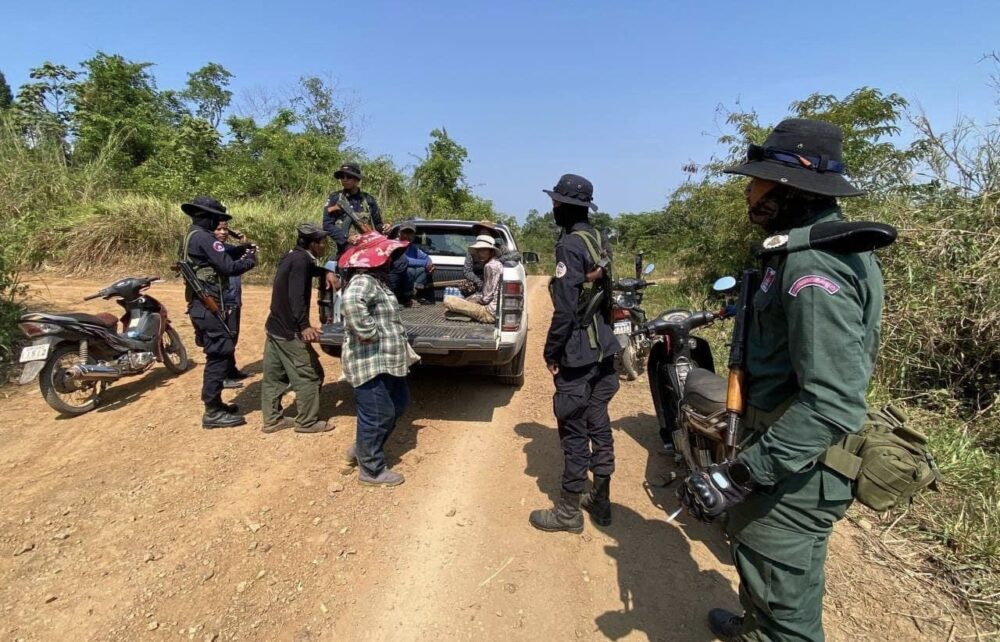Prime Minister Hun Sen on Friday threatened a political analyst who had made comments critical of Cambodia’s foreign policy toward China, and said another analyst who had spoken of government negotiations with Sam Rainsy should be arrested.
Speaking at a campaign to launch vaccinations for children aged 6 to 12, Hun Sen also stressed there is no political negotiation with the outlawed CNRP, a rumor that has been circulating in recent weeks.
“I sent a message to Dr. Meas Nee, you have rights of expression but are not arrogant about foreign affairs policy,” Hun Sen said.
“There is a doctorate [Meas Nee] who says everything we are doing with China is all wrong,” he said. “We have done everything it doesn’t satisfy him.”
He pointed to an analysis Nee made recently, criticizing the government for exempting Chinese tourists from its ban on foreigners, saying the country was favoring China after the country recently provided millions of dollars in grants and aid.
Hun Sen also ordered the arrest of a political analyst who said he believed a unity government was in the works, an idea instigated by former opposition leader Sam Rainsy, who is in self-exile. Though he didn’t refer to the analyst by name, he spoke of a “six-point” program, recently discussed by Seng Sary.
“For a doctorate, we have already issued an arrest warrant, because he supports six points that will enable the formation of a national unity government,” Hun Sen said, adding that a point related to movement of the armed forces is illegal.
“It does not protect freedom of expression because an illegitimate government or movement are armed forces rebels,” Hun Sen said.
“I just reminder analysts, do not analyze unreasonably, and don’t say that the Hun Sen’s government dare not to catch all you,”
He said if someone posts such comments on Facebook it can be considered a “red-hand crime” that could draw arrests even at midnight.
On July 21, Sary posted an analysis on the possibility of Rainsy forming a unity government that would draw together public forces, youth, internal forces of the ruling party, armed forces, and international and neighboring countries.
Sary, who fled to Thailand, told CamboJA that he denied Hun Sen’s efforts to link him to pushing for or engaging in the plan, noting he is just a social analyst.
“I have no political power,” he said, he said, adding that his analysis was just an exploration of possibility — not something he was pushing for.
“The accusation is serious in harming me and other analysts cannot talk anymore,” Sary said.
“I am worried about my personal security because Samdech Hun Sen has power, armed forces, intelligence, including the court,” he said.
Nee, for his part, said his analyses are similarly based on his interpretation of events.
“I have never insulted nor am I an opponent of China nor have I joined with a political party to threaten the government. I just speak out what I have observed as a normal citizen,” he said.
“If my analysis is wrong, I will accept it. But sometimes our analysis is wrong today but sometimes it is correct in future,” Nee said.
He said that currently Cambodia is suffering geopolitically in the region, and noted that issues regarding China are sensitive for the government.
“It’s usually when there is a threat, it is scary because I am a common citizen. I have nothing to protect myself, so I will reduce my talking,” he added.
Am Sam Ath, deputy director of rights group Licadho, said that in democratic countries people’s speech should never be considered criminal.
“It is very essential in democratic countries to be freely open to constructive criticism,” he said.
“For me, some constructive criticism can be a big contribution for the government to reconsider [certain actions.] We Cambodian citizens do not want to see sanctions and international criticism against Cambodia because of this story,” he said.
Chak Sopheap, executive director at CCHR, said that the Prime Minister’s recent speech, “warning” analysts for their comments on Cambodia’s foreign policy with China, raises red flags on the subject of freedom of expression.
“Political analysts should be able to do their job and publish their findings – even if they are unfavorable to the government – without threats or warnings of any kind,” she said.
Sopheap said that freedom of expression as a fundamental freedom cannot be selectively upheld only when the government is being praised.
If an arrest warrant was indeed issued for Sary, she said, it would demonstrate how intolerant the government has become regarding the subject of political opposition.
“Forming, supporting or discussing a political party is not a crime, but rather a basic tenet of democracy,” Sopheap said.
During his speech, Hun Sen reiterated that there was no political negotiation with the former CNRP, saying he was aware that senior CNRP officials had held Zoom strategy sessions and that he had crashed some of them.
“Now, there is no political negotiation. What we must do now, prisoners need to serve two-thirds of their prison term, then will consider a pardon or reducing sentences,” he said.
He said that he has tried national reconciliation many times but the “rebel group” doesn’t understand the national reconciliation.
“Don’t mislead [to say] that when I crashed a Zoom last time it was a sign for negotiation. I’ve just sent a warning message to rebel groups that everywhere has Hun Sen’s people, please be careful and don’t do any activities against the national interests,” he said.
“I listened to Zoom not only once, but over 20 times, and there might be more than 50 clips [of meetings] that they have sent to me,” Hun Sen said.
“I do not hack into Zoom but my spies are everywhere and sent it to me,” he said. “It is not a private issue, or doesn’t violate private rights individually because you were talking about something against the nation, and I have the right to get in [Zoom meeting]” he said. (additional reporting by Sam Sopich)


